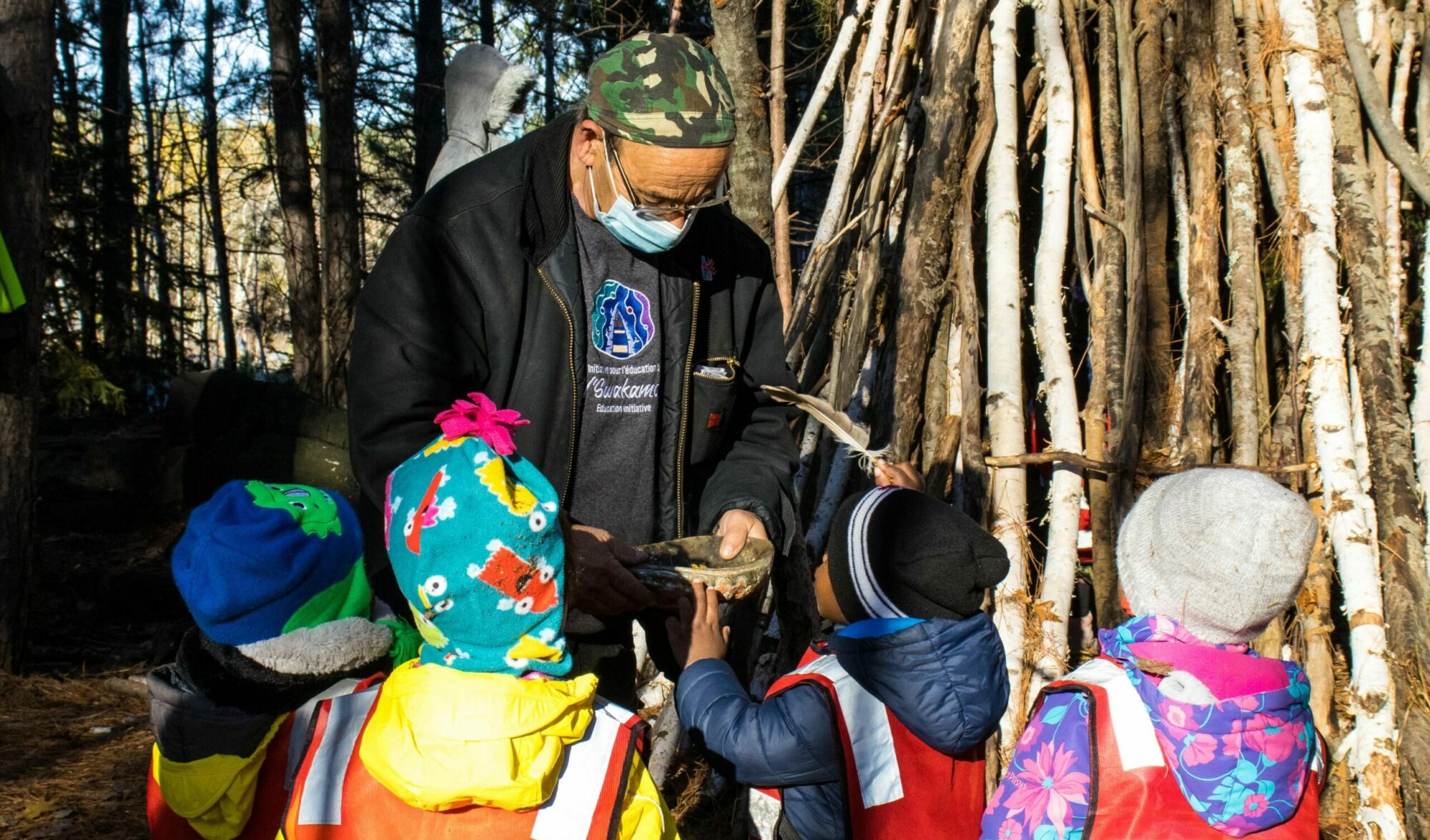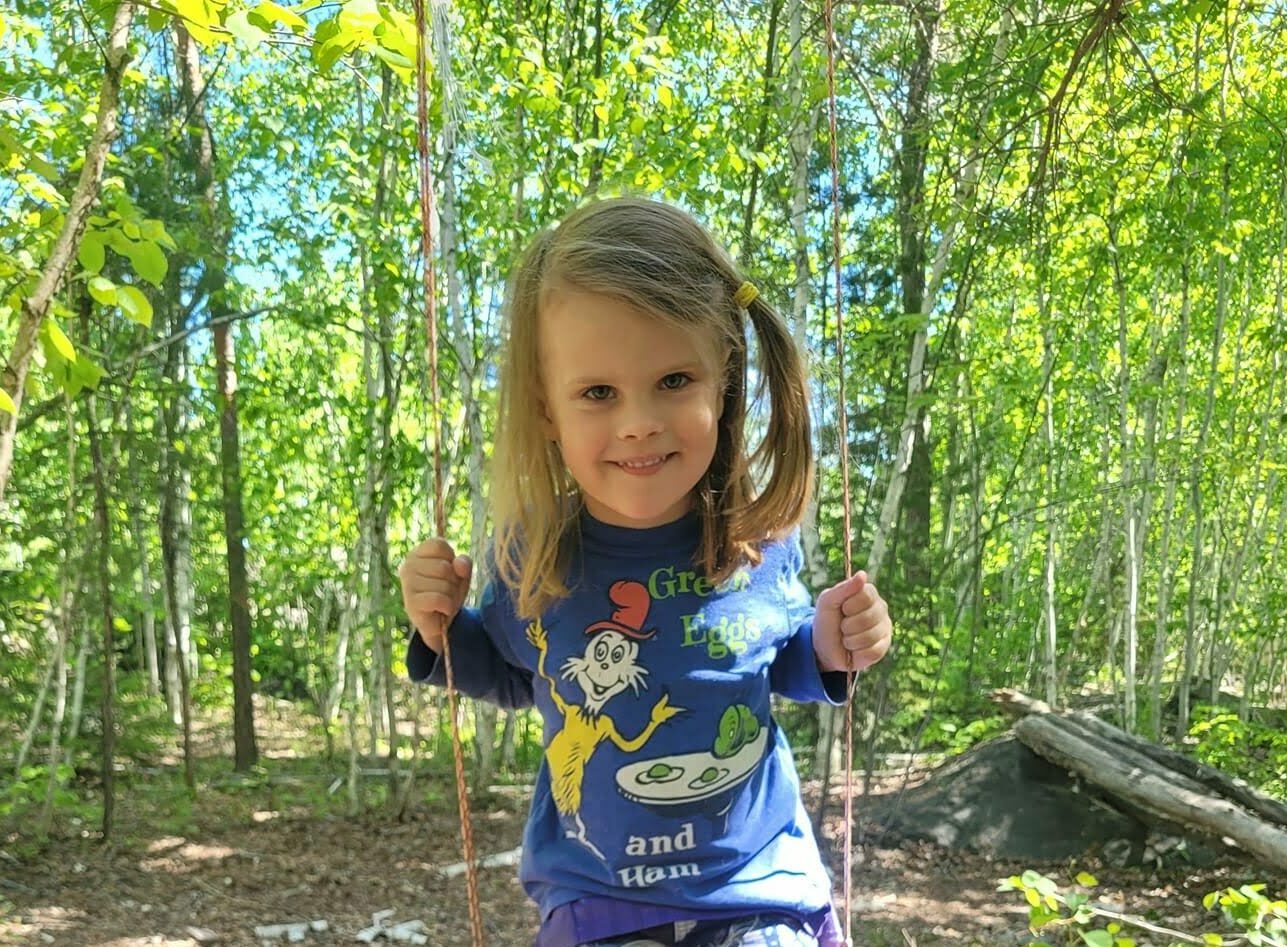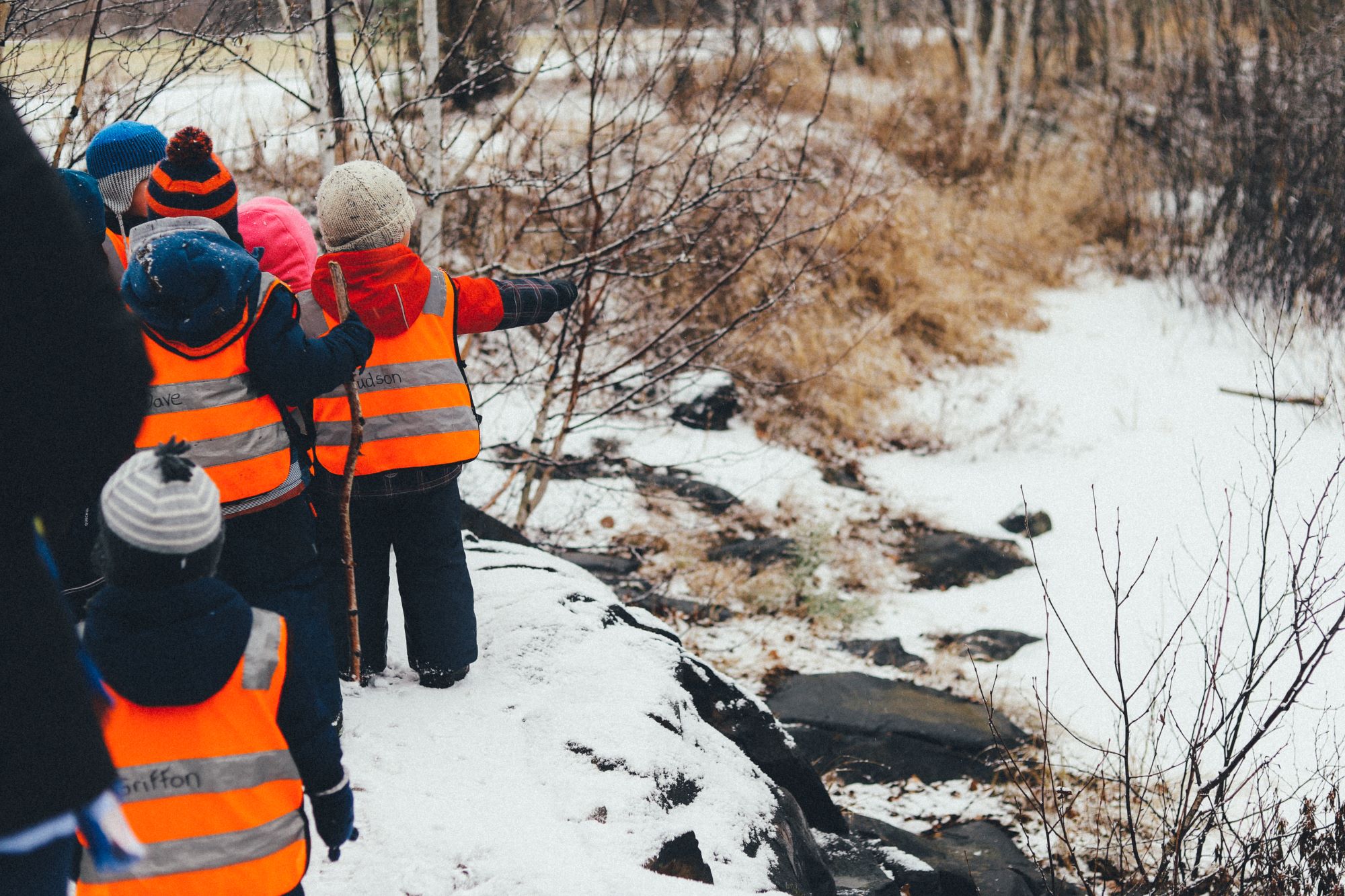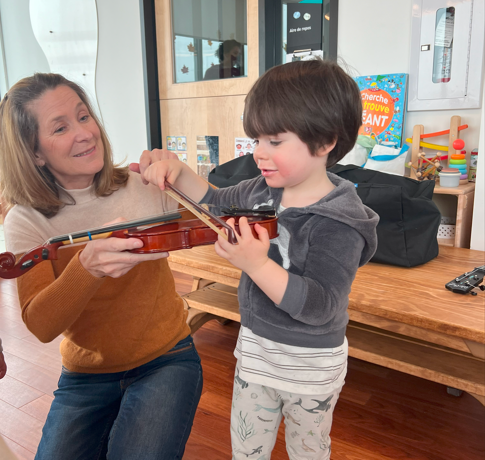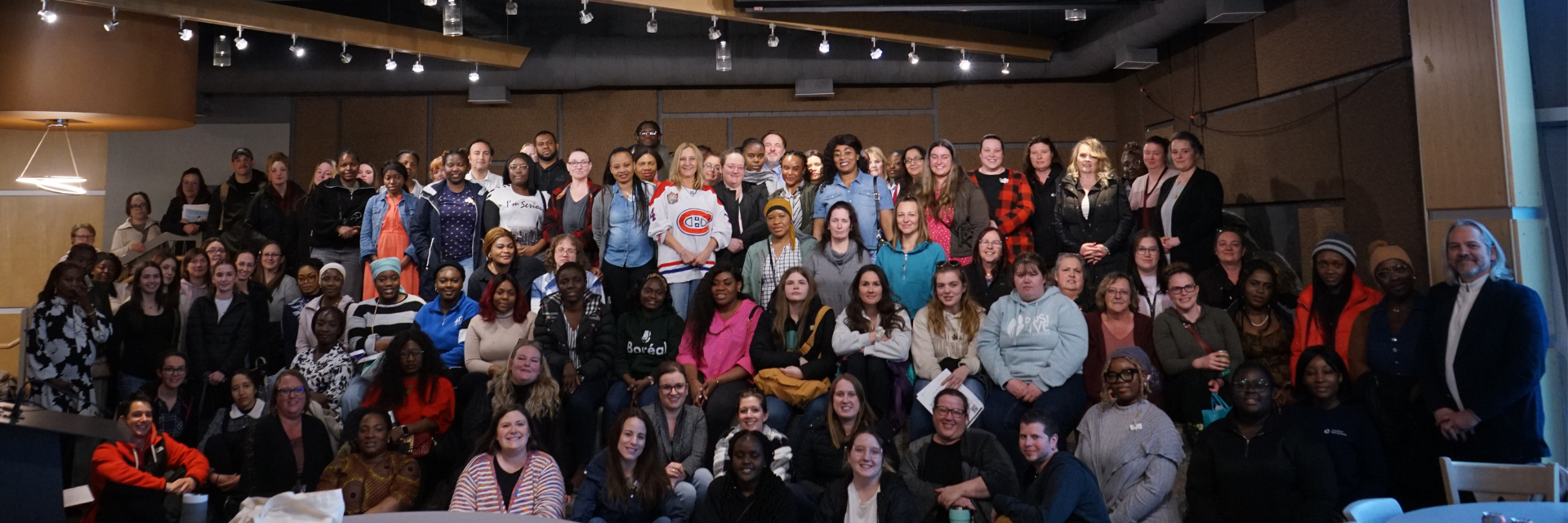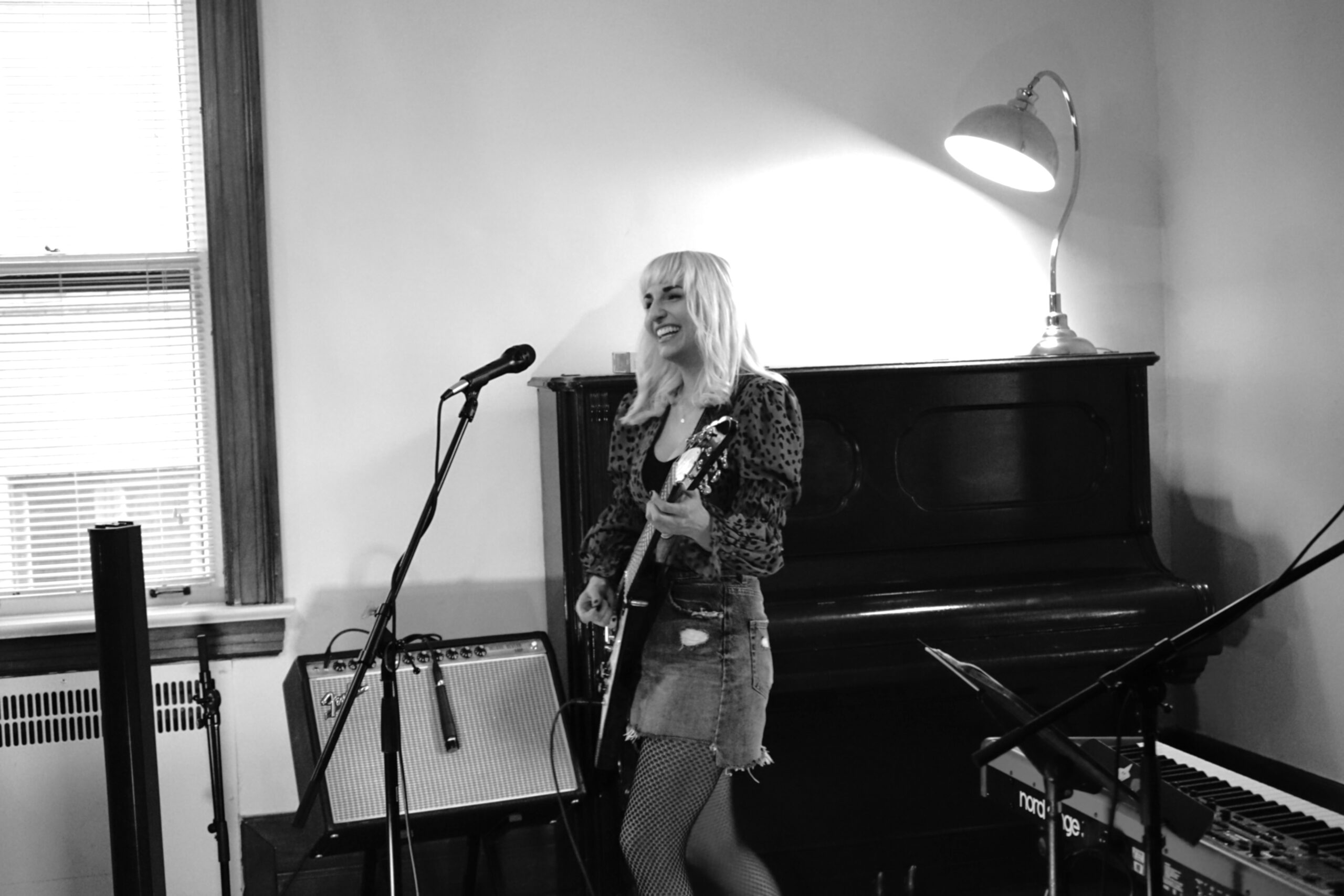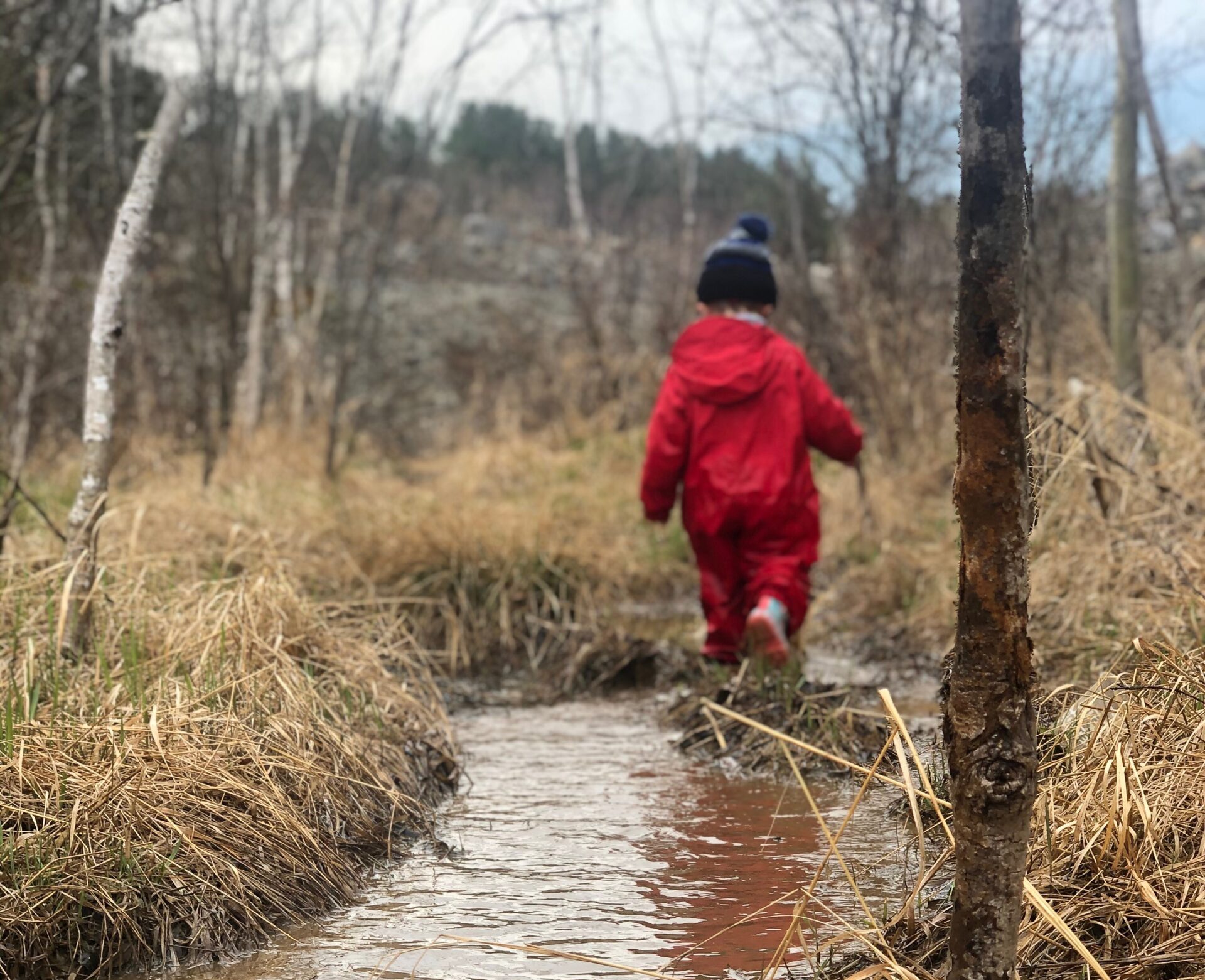
A Special Approach to Nature
The nature and forest daycare program aims to remove obstacles to the outdoors in early childhood centres to increase the frequency and number of outings in the natural environment. We work on health and safety, staff training, site layout, partnerships, family engagement and much more!
The benefits of the outdoors
For young children, playing in the great outdoors provides many benefits. It strengthens cohesion and mutual aid, develops self-esteem, promotes creativity and imagination. The forest contributes to the overall well-being of the child by offering an ideal ground for the development of motor skills.
The connection with nature is fundamental to the well-being of every individual and to our society in general. Our first early childhood centre in the forest, Boréal des tout-petits, does its part by providing daily outings to the nearby forest at Collège Boréal. Over time and with the support of families and the College, a base camp was set up with a few huts.
The origin of the program
In 2019, the team got to work in order to find effective systems to facilitate outings year-round, document their benefits, and train staff on nature pedagogy in connection with the Ontario curriculum, How Does Learning Happen?
In July 2022, the Carrefour francophone received significant financial support from Employment and Social Development Canada (ESDC), enabling it to launch the Boréal des tout-petits program and an action-research project on outdoor pedagogy.
The Boréal des tout-petits educational staff then began to be accompanied by an educational consultant dedicated to this project. Mornings of “family involvement” were also set up to participate in the life of the forest base camp created at Boréal des tout-petits. The CPE forest project comes to life!
Scène des tout-petits joins the project
One of the objectives of the project is to extend this initiative to other Carrefour francophone childcare centres, as well as to those in Ontario who wish to integrate outdoor education into their practices. So, naturally, the project was extended to the Scène des tout-petits childcare centre.
Initially, the children had a designated area in the schoolyard forest. A gate was then installed in the fence, linking the school play area to the public forest behind the fence. The children were then able to start exploring the new playground. In the early days, they went on excursions to the rocks in the forest.
The summer of 2023 marked a turning point with the construction of a base camp in the heart of the forest. Today, this well-appointed site is the heart of our educational activities in the forest, and families have played an active part in setting it up and improving it during family engagement mornings.
Preliminary data
We took a look at the accident reporting data for Boréal des tout-petits in 2022, and here’s what we found:
- 75% of children’s injuries occurred indoors
- 10% of injury reports involved a boo-boo in the forest. The most common injuries were scratches.
- no incident reports were made in the forest in 2022 (an incident report indicates negative behavior by one child towards another).
- Although the forest is perceived as a “risky” environment, children are less likely to be injured outdoors, and have fewer behavioral problems.
Encouraging data!
The results of the action-research carried out in recent years show that the program has a significant impact on educators, children and their parents:
- 95% of educators recognize that nature fosters the development of decision-making, self-confidence and social skills in children.
- 84% feel able to manage risks in nature,
- 89% of educators are comfortable with messy play and 68% with independent play.
However, certain practices such as play fighting, tool use or climbing remain sources of discomfort for educational staff. Staff also report a drop in inappropriate behavior and share that noise management is easier in nature. Children seem happy and committed to discovering nature, exploring their abilities and testing their limits.
As for parents, just over two out of three felt that playing in the forest helped their child to solve problems, and noted greater autonomy. The overall picture is positive. However, only 48% of educational staff say they are well-informed about outdoor education, and staff find it more difficult to delimit the area in which children can explore. The project therefore continues to evolve to provide solutions and improve the nature experience for all.
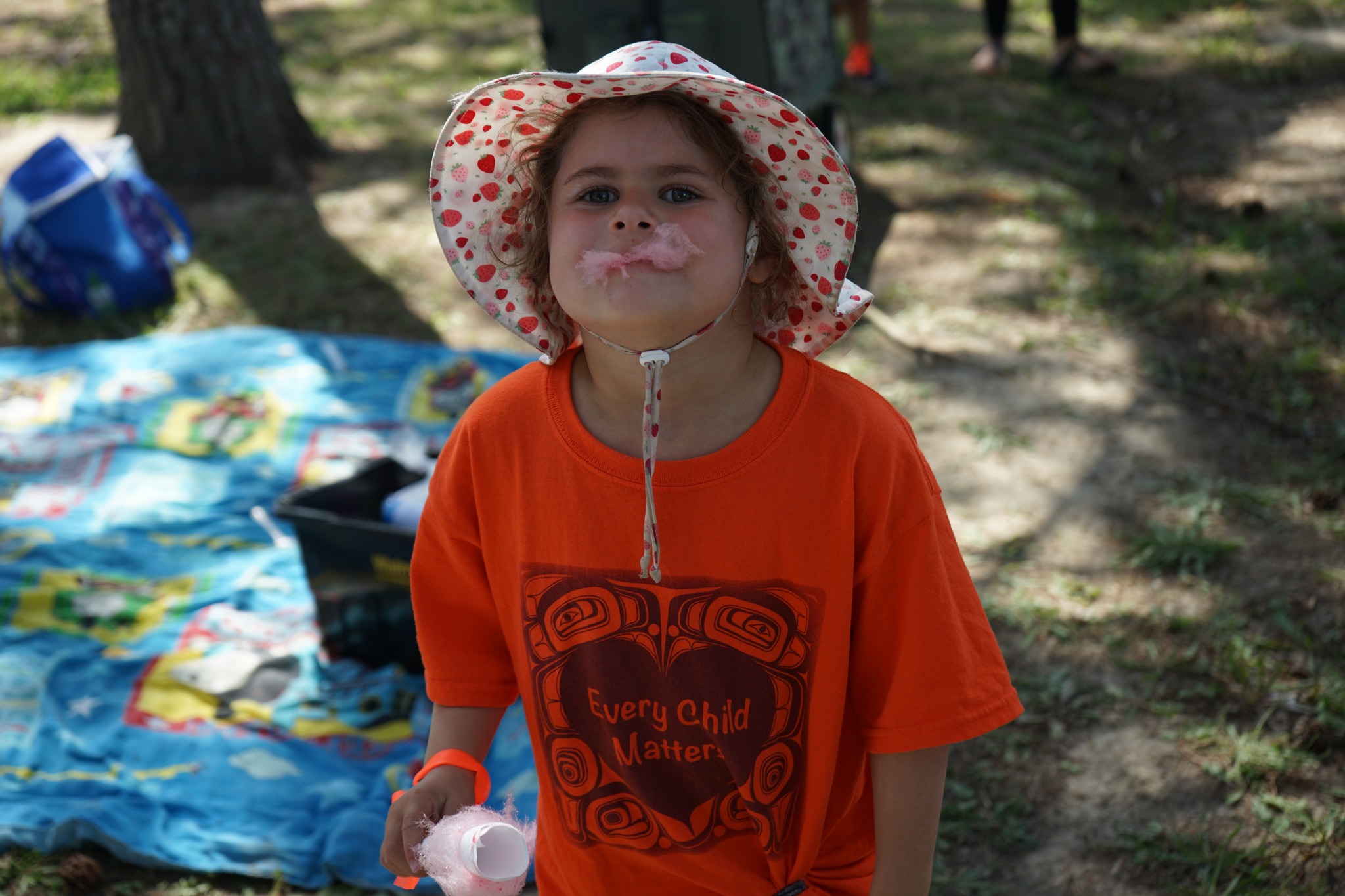
Find out more about the project and the results of the action-research.
In September 2024, we realized a webinar that provides more information on the evolution of the project, as well as the results of the action research.
Whether you are a parent or an early childhood professional, you are sure to find concrete information, and it may even inspire you to set up similar initiatives at home!
If you would like to stay informed about the project’s progress, and receive ideas for nature-based activities you can enjoy with your family, or interesting facts about local flora and fauna, you can sign up for the monthly newsletter at the bottom of the page.
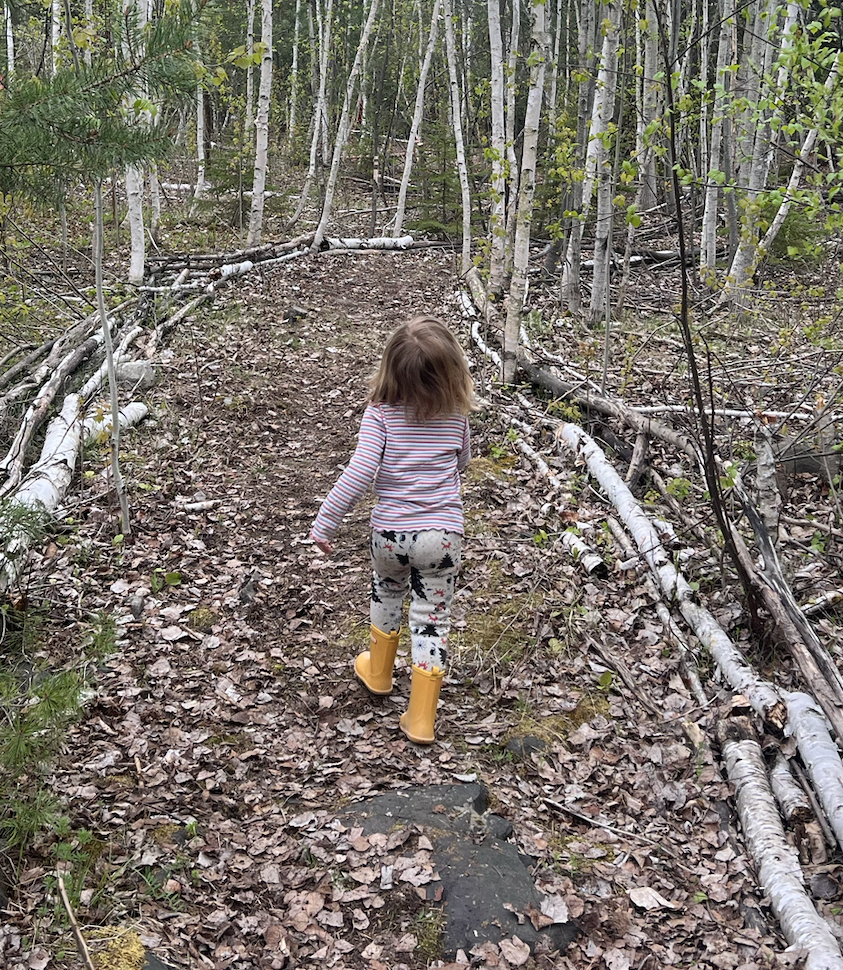
Let's take it to the next level!
Our next step is to extend the program to other Carrefour francophone childcare centres, as well as to other francophone childcare centres in the rest of Ontario. We hope that other children will be able to benefit from this natural approach, which has already proved its effectiveness.
At the same time, a training program for educational staff will be set up. It will help staff members strengthen their skills in outdoor education and develop their confidence in the field. This training will make it easier for them to integrate outdoor play and risk management into their practices, while continuing to accompany children in their discoveries in nature.
This new initiative will also enable the program to be deployed on a wider scale, and inspire other establishments to adopt outdoor education.
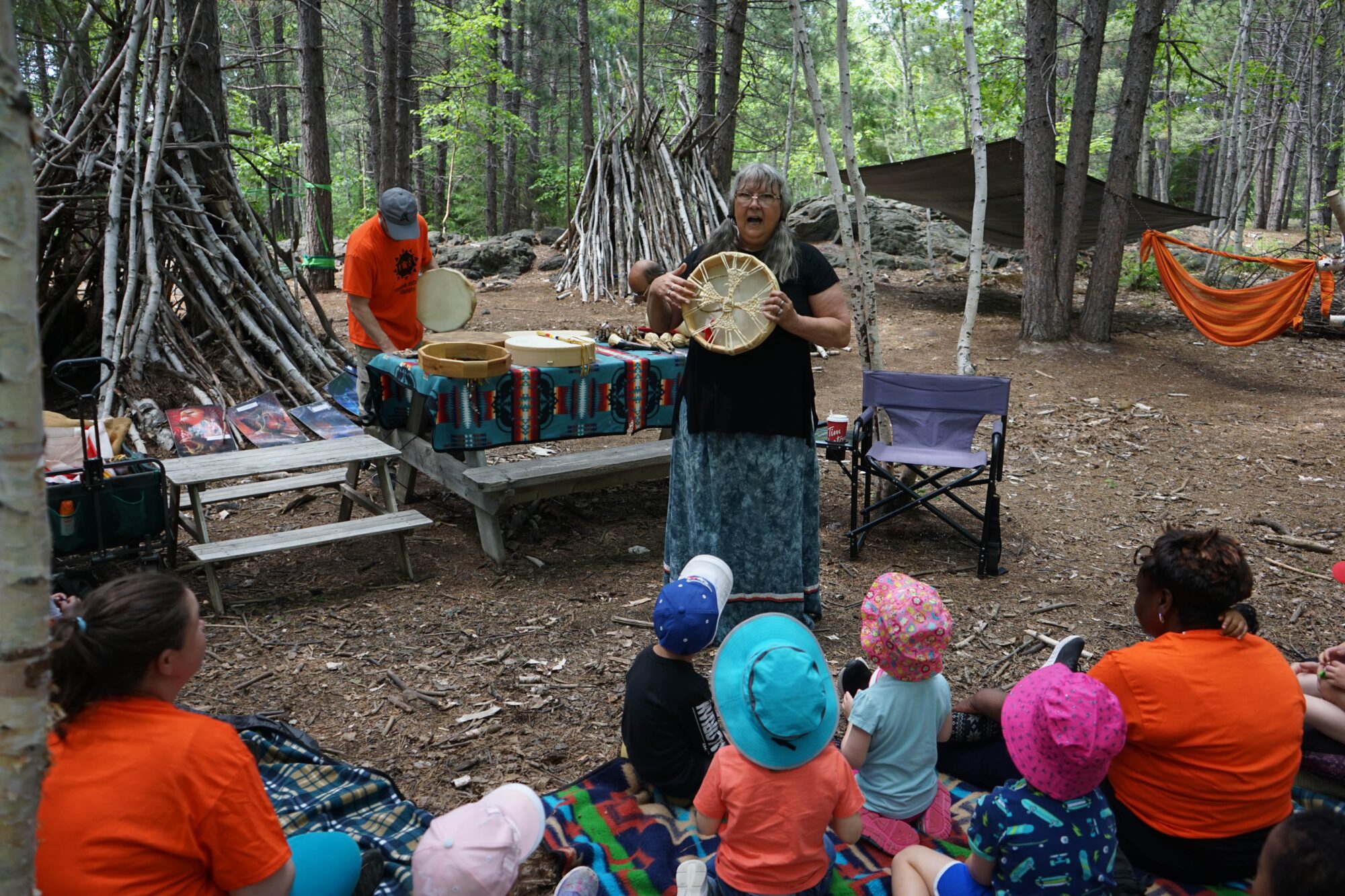
Thank you !
Thank you to our partners, Collège Boréal and Centre éducatif des Premières Nations, Métis et Inuit et le Pavillon Shkode (Coeur du feu), for allowing us to set up such projects for the well-being of children.
Carrefour francophone de Sudbury recognizes that we are on the territory designated in the Robinson-Huron treaty and that the lands on which we are gathered are part of the traditional territory of the Atikameksheng Anishnawbek nation.
This action-research project is funded by Employment and Social Development Canada under the Early Learning and Childcare Innovation Program.
Discover the program, from top to bottom, in our blogs!
-
20. Promises are coming true
February 2025
-
19. The time has come
January 2025
-
Find out more about our adventures here
2021-2024

